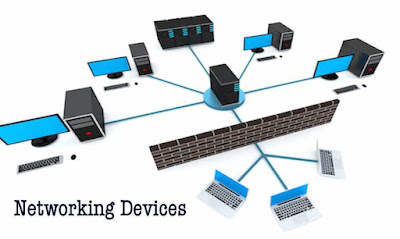WHAT IS A COMPUTER NETWORK?
Computer Network
- is the interconnection of 2 or more computers.

Computer Networks have many Advantages. Among the many benefits are:
1) Reduced Costs - Everyone in your home or office can share a single printer and a single high-speed Internet connection at the same time.
2) Increased Efficiency - You can access data, pictures, and many other files on any connected computer without having to save them into a USB flash drive or burning them in a CD.
3) Economical - Purchasing software network licenses is relatively cheaper than purchasing individual licenses.
4) More Productivity - Shared internet access means no one needs to wait to use the Internet or email. Everyone can work simultaneously.
5) Increased access to communication channels - You can communicate with others in the network using the email or an Instant Messaging (IM) software.
6) More efficient patching of software - Software updates need only be installed once.
- A patch is a piece of software designed to fix or update the data of a computer program.
However, it also has some Disadvantages; among these are as follows:
1) Network failure - If the network fails, the users lose access to information and the ability to communicate electronically.
2) Server Error - Server faults may prevent you from using some applications, or even from accessing your computer.
3) Prone to Hacker - Your system is open to hackers, especially if it is connected to the Internet at all times.
4) Prone to Virus - Networks are vulnerable to virus attacks.
5) Location Problems - Resources, such as printers, might be located too far from your table.
1.) Wired Network
Are typically used at the network core to interconnect servers and Network Equipment.
It is more reliable over the long term, much faster, and more economical.
A Wired Network is a common type of wired configuration. Most wired networks use Ethernet cables to transfer data between connected PCs. In a small wired network, single router may be used to connect all the computers. Larger networks often involve multiple routers or switches that connect to each other.
2.) Wireless Network
This is quickly becoming the connection option of choice as it does not require any
cables to be set in your home or office.
Are computer networks that are not connected by cables of any kind. The use of Wireless Network enables enterprises to avoid the costly process of introducing cables into buildings or as a connection between different equipment locations. The basis of wireless systems are radio waves, an implementation that takes place at the physical level of network structure

Types of Network:

2) LAN (Local Area Network) - is a type of network where two to as much as hundreds of computers are connected with each other using a network sharing device known as hub or switch.
3) MAN (Metropolitan Area Network) - is a larger network than a LAN. It involves connecting several networks together that reside within a city, town or metropolis.
SOURCES:
https://pngtree.com/freepng/computer-network-vector-material_1582376.htmlcomputer-network-advantages-and-disadvantage
http://www.auroratech.us/it-services/wired-wireless-networks
https://www.pinterest.ph/pin/572379433864670757/
http://www.itrelease.com/2018/07/advantages-and-disadvantages-of-personal-area-network-pan/
https://www.computer-networking-success.com/computer-lan-network.html
https://www.mbaskool.com/business-concepts/it-and-systems/13281-local-area-network-lan.html
types-of-computer-networks.html
https://www.indiamart.com/proddetail/wide-area-network-services-3075210355.html
https://www.mbaskool.com/business-concepts/it-and-systems/13281-local-area-network-lan.html
types-of-computer-networks.html
https://www.indiamart.com/proddetail/wide-area-network-services-3075210355.html









Comments
Post a Comment